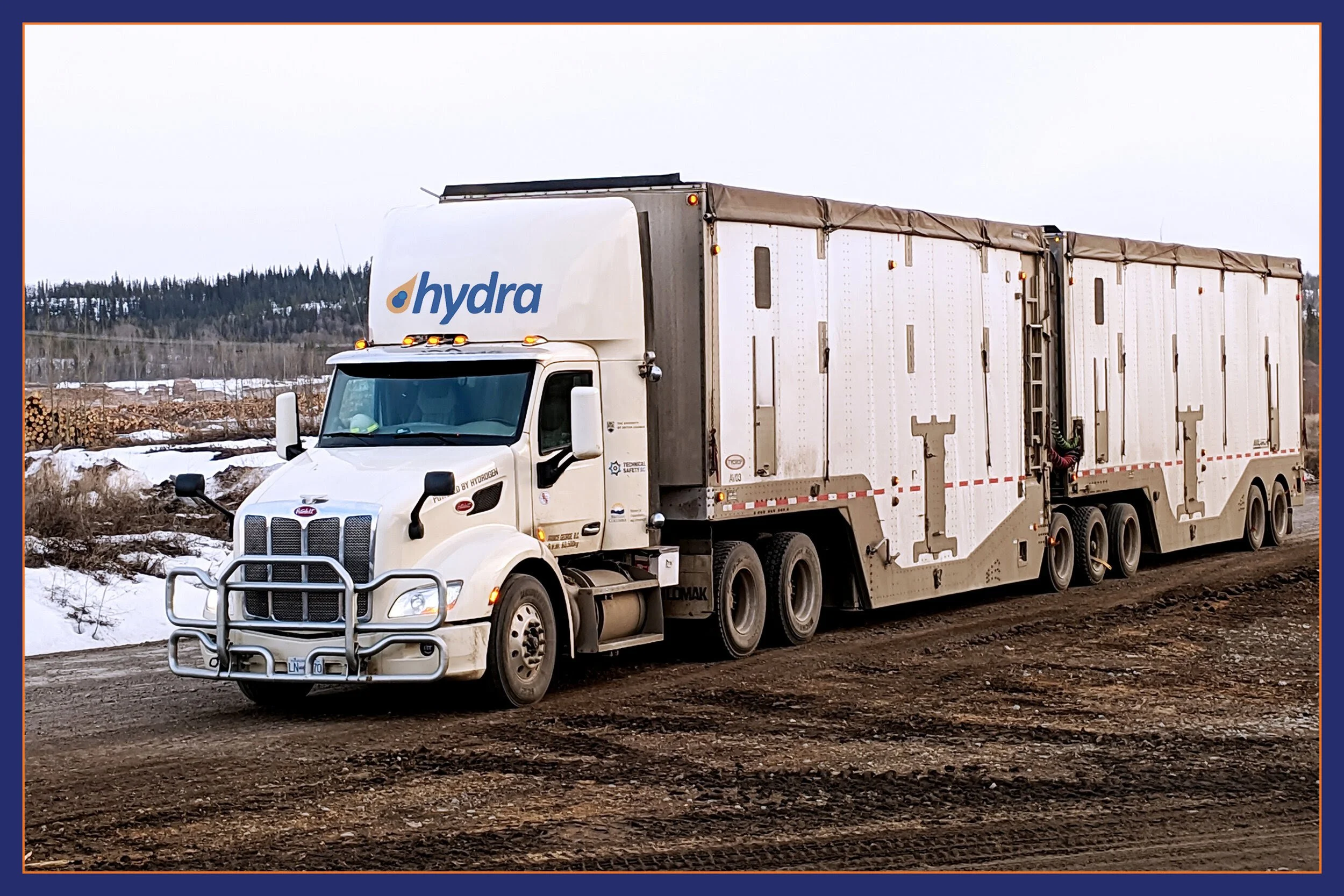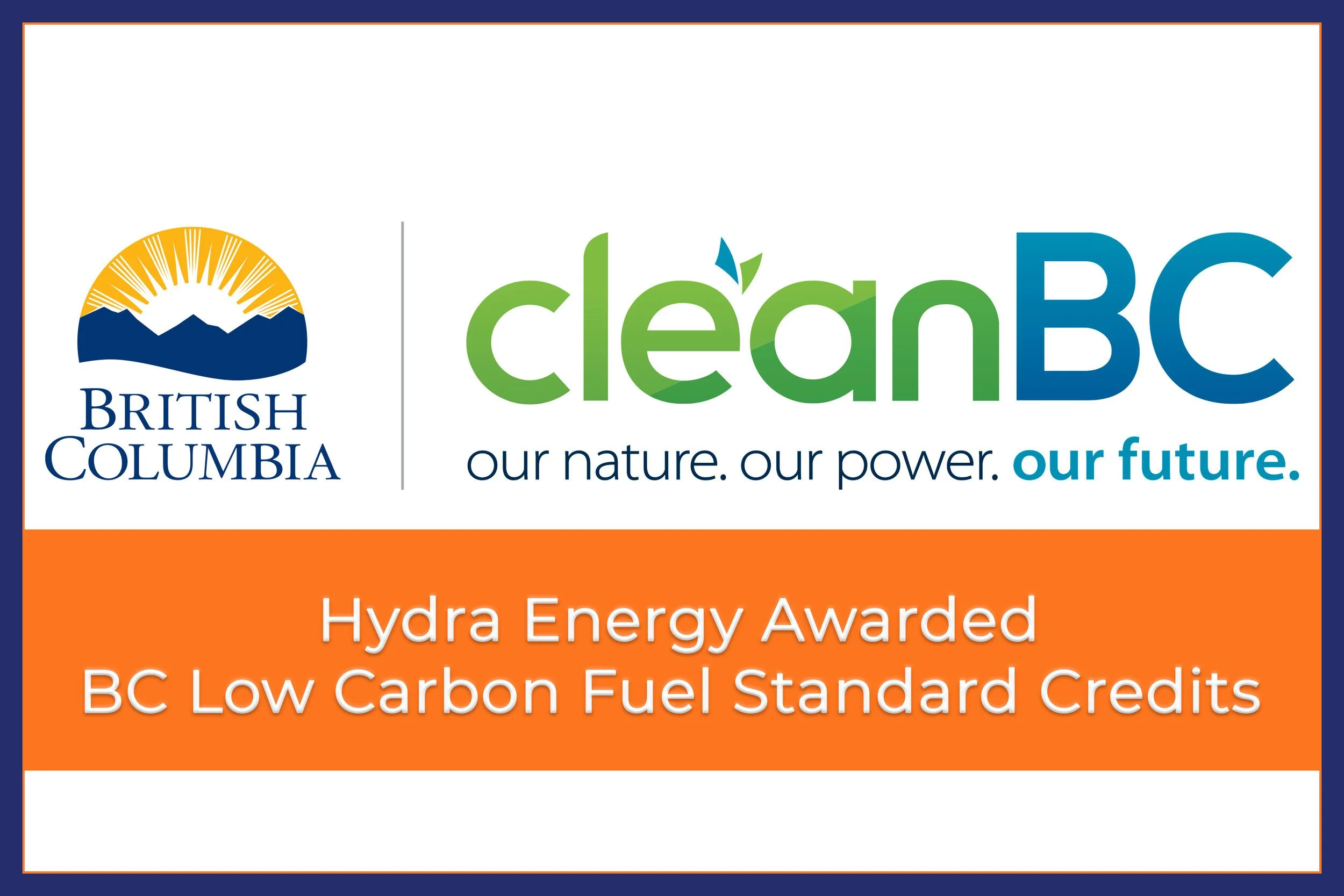Summer 2021
The first half of 2021 was full of exciting developments, as such we are pleased to share with you the first edition of Hydra Energy’s newsletter!
In February we announced our partnership with Chemtrade to provide commercial truck fleets with low carbon hydrogen below the cost of diesel. The initial focus is on our flagship project in Northeast British Columbia, securing off-takers fleets and more for 30 years of hydrogen supply. We’ll move to contracting off-takers for Chemtrade’s hydrogen at the next three sites across Canada.
In May Hydra secured CAD$15M from impact fund Just Business to support the further development of Hydra’s flagship project and growth.
Our detailed engineering study has kicked off with Wood, an engineering consulting firm and PCL, Canada’s largest construction company. Completion is expected in October and will be a critical component to share with potential investors as Hydra seeks the remaining funding for our projects with Chemtrade.
After fantastic advocacy from the BC Trucking Association, of which Hydra is a member of, the Province of British Columbia announced a blanket weight allowance for hydrogen-powered vehicles, a first for any province or territory in Canada that we hope sets a precedent to be replicated elsewhere. For Hydra this means the extra weight from our tank rack is fully covered so trucks that we convert won’t lose any payload capacity and Hydra no longer needs to apply for a weight exemption for every single truck.
Hydra has also been advocating that the Province include low carbon hydrogen in its definition of renewable gas, which has now passed alongside other amendments that enable natural gas distributors in BC to procure hydrogen from suppliers like Hydra. Being able to sell Hydra’s excess hydrogen to a high credit worthy partner like a natural gas distributor makes Hydra much more bankable as we seek to add debt partners.
We are proud to be able to share that the Province of BC released an announcement that Hydra Energy will received Low Carbon Fuel Standard credits worth a current market value of $1.9 million to build a hydrogen fuelling station in northeastern BC. The BC LCFS offers credits to fuel suppliers undertaking actions to increase the use of low-carbon fuels that would not occur otherwise, an important part of achieving the GHG emissions reduction targets set by the Province in CleanBC of 40% by 2030.
Our former COO, Jessica Verhagen, was promoted to Chief Executive Officer positioning Hydra to scale adoption of our Hydrogen-as-a-Service business model. This comes on the heels of Jessica being named into Canada’s Clean50 list for 2021 of sustainability leaders.
Hydra Energy was also recognized on the 19th annual Ready to Rocket list as a Cleantech Emerging Rocket in April. Then in May were selected as a finalist in Fast Company’s 2021 World Changing Ideas Awards in the Transportation Category.
The Hydra team continued to be involved in a variety of panels as the interest in hydrogen grows ever greater. Jessica was asked to speak at Northwind’s 17th Annual Electricity Invitational Forum on the potential strategic role within a clean energy economy in Canada; the New Energies Era put on by Alberta Clean Technology Industry Alliance, Foresight, and Eunike Ventures on Industry Experience & Emerging Solutions; CERAWeek Energy Innovation Pioneers by IHS Markit; Hydrogen Americas Summit on key challenges to unleash hydrogen potential; and Women+Power’s Industry Leader Panel on Industry Insight, Skills and DEI with the FortisAlberta CEO.
Meanwhile from our tech division, Badr Abduljawad was published in Canadian Automotive Fleet discussing four trends driving hydrogen fuel adoption for the June/July issue dedicated to sustainable fleets, and lifecycle considerations. Badr also appeared alongside Hydra’s Manager of Hydrogen Systems Integration, Patrick Steiche, on FEV’s Future of Mobility Podcast.
Scaling up hydrogen is the fastest path to the highest impact we can have on the environment. We believe heavy-duty trucking is an industry that has a large untapped potential to become cleaner. There’s no need to wait for fleets to buy new trucks in a decade. The carbon emissions curve can start being bent down now with hydrogen in existing engines.
10.5% of Canada’s greenhouse gas (GHG) emissions come from freight transportation, and a majority of these emissions come from heavy-duty trucks. 23% of the U.S.’s GHG emissions come from medium- and heavy-duty trucks. These numbers are only predicted to grow which presents a huge problem for the environment.
Hydra and its partners deliver real hydrogen now and are committed to making the world run greener when it comes to the transportation of goods.





